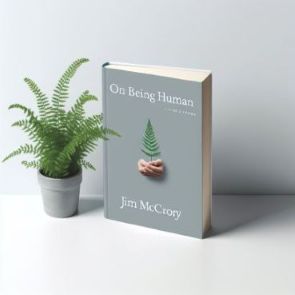
Feeling Undervalued
Many years ago, I watched the film Fiddler on the Roof. One scene has stayed with me ever since. Tevye’s wife, Golde, suddenly asks him a question after many years of marriage: “Do you love me?”
The question catches Tevye off guard. In their tradition marriages were arranged, and love was rarely spoken about openly. To him, the answer seems obvious. He begins listing all the things he has done for her over the years: working hard, providing for the family, sharing the burdens of life. Surely these things demonstrate his love. But Golde is looking for something more than a list of duties fulfilled; she longs to hear words of appreciation.
Her question reveals something deeper. What she really wants is recognition expressed aloud—something that acknowledges the bond between them. The moment becomes tender and reflective, leading into the gentle song Do You Love Me? where the two cautiously explore feelings that had long been assumed but never spoken.
The scene captures something deeply human. We live not only by actions but also by words. A kind word can lift the spirit in ways that practical service alone sometimes cannot. Most people do not seek constant praise, yet sincere appreciation has a quiet power. It reassures us that we are seen and valued.
Unfortunately, the opposite can also be true. Some people carry with them a kind of gloom—an atmosphere of criticism or coldness. It may appear in sharp remarks, dismissive attitudes, or simply a lack of warmth. Such negativity can weigh heavily on those around them. Where appreciation is absent, discouragement often takes its place.
Gratitude, by contrast, has a remarkable effect on human well-being. It can increase happiness, strengthen relationships, and even lessen feelings of depression. One reason for this is simple: gratitude shifts our attention. Instead of focusing on what is missing or imperfect, it turns our gaze toward what is present and good.
Literature offers many poignant reflections on this theme. In Middlemarch by George Eliot, we encounter the quiet suffering of Dorothea Brooke. I recall cringing, I mean really cringing as I watched a certain scene play out. Dorothea is an intelligent and idealistic young woman who longs to dedicate her life to meaningful work and moral purpose. Believing she can contribute to something intellectually significant; she marries the scholar Edward Casaubon.
Yet her hopes gradually fade. Rather than welcoming her devotion and assistance, Casaubon becomes defensive and distant. Dorothea’s generosity, intelligence, and willingness to serve are not only unappreciated but subtly resented. The marriage becomes a place where her gifts remain largely unseen.
Her story reveals a quiet tragedy: the sincere desire to contribute, combined with the pain of feeling that one’s efforts do not matter. Eliot writes with deep sympathy for such people—those whose goodness is genuine but easily overlooked in the ordinary patterns of life.
In reality, many people experience something similar. Those who are thoughtful, generous, or humble do not always attract attention. Louder personalities or rigid social expectations can overshadow quieter virtues. Yet the absence of recognition does not diminish the value of those qualities.
From a Christian perspective, kindness and appreciation are not merely social niceties; they reflect something deeper about the way human life is meant to be lived. In Galatians 5:22–23 we read:
“But the fruit of the Spirit is love, joy, peace, patience, kindness, goodness, faithfulness, gentleness and self-control.”
Here kindness is described as something that grows naturally in a life shaped by God’s Spirit. It is not forced or artificial. It emerges from a heart that has learned to see others with compassion and respect.
A quiet thread runs through these reflections from Golde’s simple question, to Dorothea’s unnoticed devotion, to the biblical call toward kindness.
Gratitude does more than acknowledge a good deed. It recognises the dignity of the person who offered it.
In this way, a few sincere words can do something remarkable: they affirm the quiet worth of a human soul























